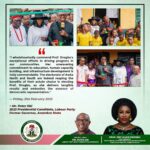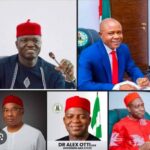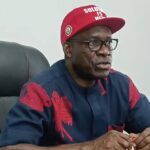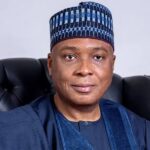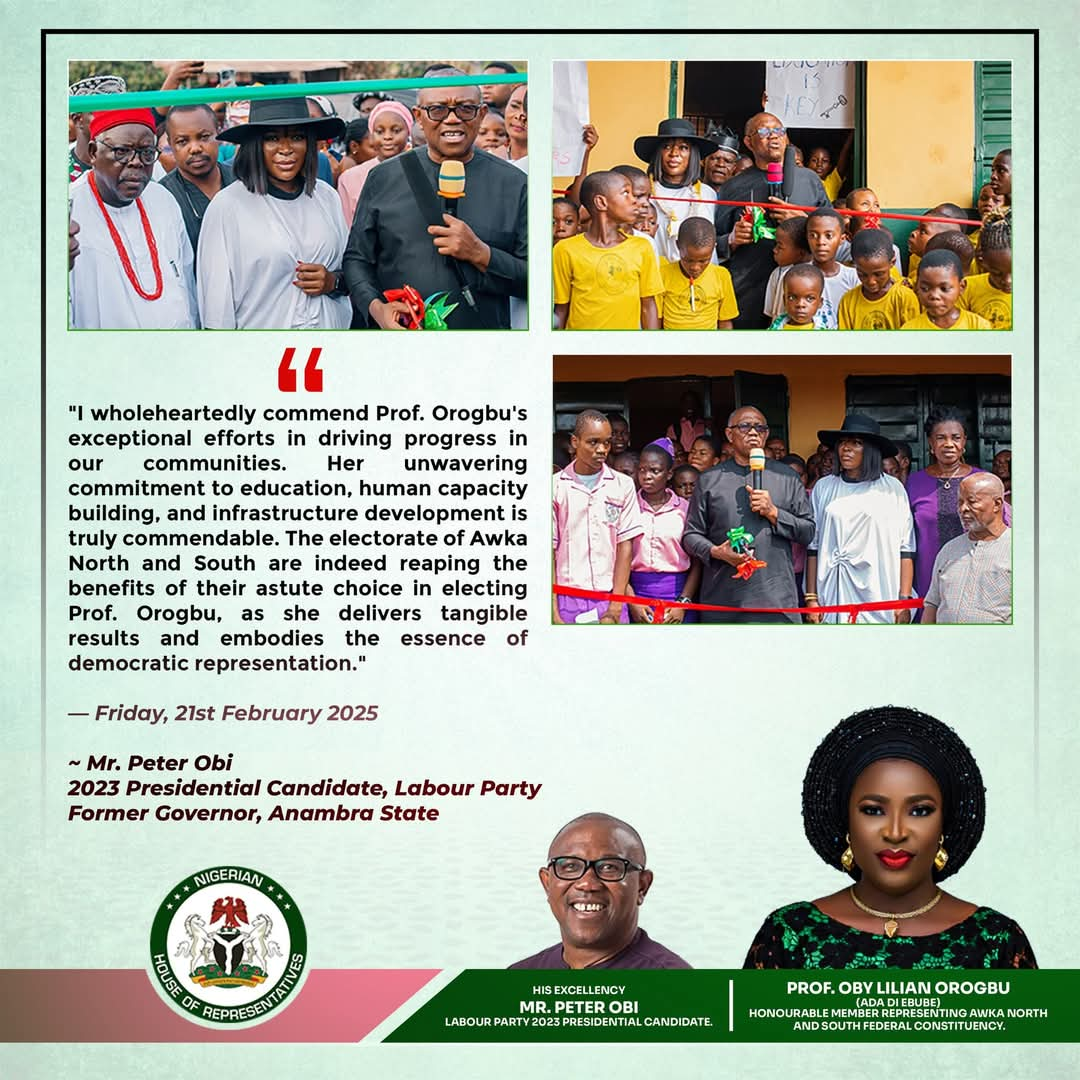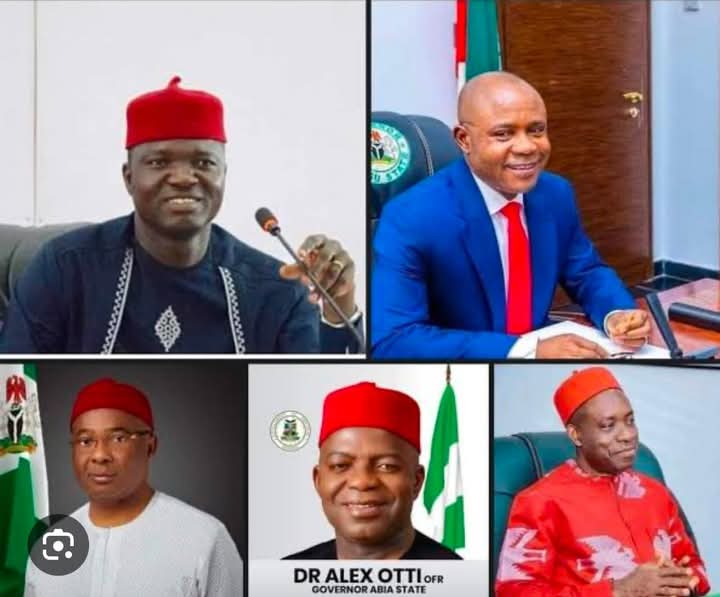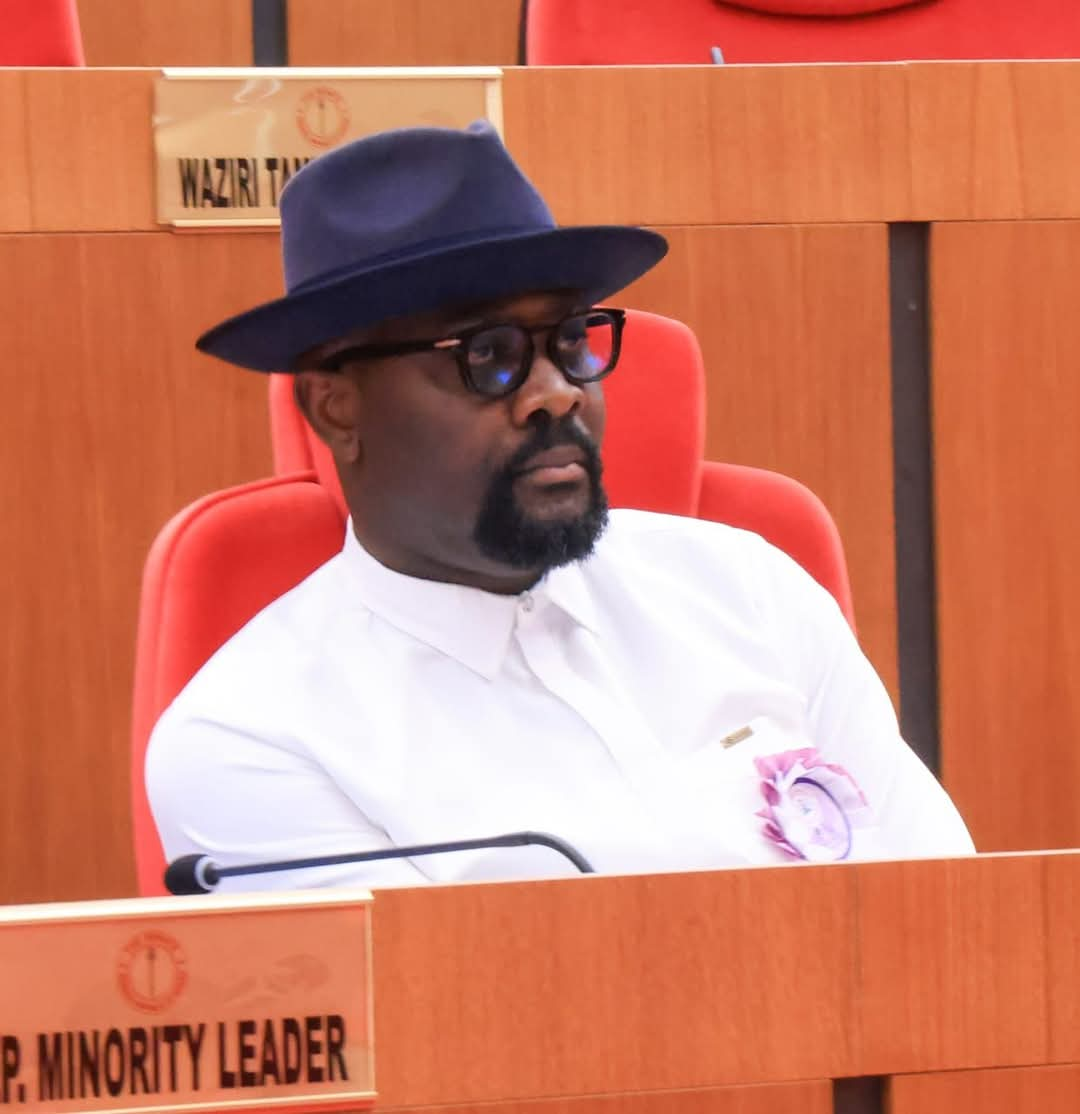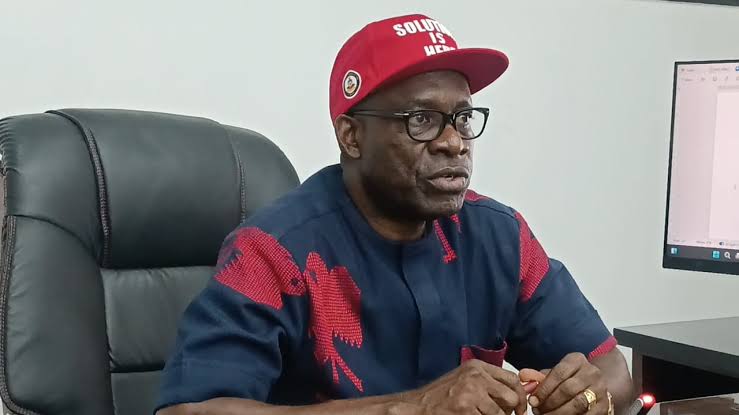 The Vice Chancellor of the University of Nigeria Nsukka, Prof. Benjamin Chukwuma Ozumba, speaks with Humphrey Onyima, the publisher of Leadership SCORECARD in the wake of the 58th Founders’ Day Lecture/ Special Convocation held within the grounds of the university in Enugu State recently.
The Vice Chancellor of the University of Nigeria Nsukka, Prof. Benjamin Chukwuma Ozumba, speaks with Humphrey Onyima, the publisher of Leadership SCORECARD in the wake of the 58th Founders’ Day Lecture/ Special Convocation held within the grounds of the university in Enugu State recently.
How does it feel to be the vice-chancellor in office for the 58th edition of the Founders’ Day celebration of one of Nigeria’s most prestigious institutions?
Before I answer that question, let me go back to June 2014, when I was first appointed. That day, I presented my first address as Vice-Chancellor at a press briefing in Enugu to flag off the Founders’ Day celebration that year. I recall [that] I made it clear then that my overall agenda was to provide the University of Nigeria Nsukka the leadership needed to become an academic giant and pace-setter in the quality of its scientific research, the level of its innovative teachings and the robustness of its community service among communities in the developing countries. My detailed five-point agenda included staff welfare, students’ welfare, environment and campus aesthetics, discipline and ethics.
I went down memory lane to spot some of the teething challenges my administration faced, with the resolve to take them head-on.
So, today, to be candid, I feel fulfilled. This is the day we remember our founding fathers. Who are our founding fathers? We are talking about men like Dr Nnamdi Azikiwe and his team (members of the Government Council) who conceptualized the university and brought it to be. The vision was to create a university which would not dwell on the excesses of the colonial masters, but seek to solve Nigeria’s problems.
Look at it; they conceptualized a university with great laboratories, the best lecturers and instructors of repute. Today, the university has fulfilled all of that and more of the objectives for which it was created. It is one of the best in researches; it is one of the best in the world etc. I just returned from a meeting in Malawi, where I was invited to help them set up a business incubation centre. What does that mean? The UNN is not just showing the light and leading the way in Nigeria, it is also doing so on the continent.
You have been adjudged to have performed exceptionally since you were appointed in 2014.What experience did you have before you were brought into this system?
When I came here from the college of medicine (where I was the provost), I told who cared to listen that I was sent here on a divine mission. Like Jonah in the Bible, I do not have time to spare and, that is why, within the last three years, the university has done so much.
Between 2014 and now, we have had more inaugural lectures, research-related travels, more fellowships (even for members of the students’ union) more faculties, more departments and more TETFUND projects have been completed than at any other time in the university’s history. Examples abound. I have fulfilled my mission here and I pray that the good Lord uses me more.
Upon your appointment in 2014, what were the challenges you noticed and how did you go about solving them?
When I came here, there was a total lack of trust. True, there were problems to be solved. The chairman of the governing council was sacked and the university management had lost the trust of the alumni, the staff had lost the trust it had for the university administration because of a back-log of promotions and the students’ union had been disbanded for a long time. It was total chaos.
However, today, all those things are gone, everything is back on track and we are going strong.
Today, we are getting donations for research and an enabling environment has been created for development and 21st century learning.
What is your legacy project, so far?
Everything I have mentioned is a legacy project. The first incubator in the country is in the UNN and the distance learning project are all part of that legacy. Now, the first Science Park in Nigeria is right here in this university and we will begin building it up. New buildings are springing up all over the place, we have the Faculty of Pharmacology and, by November, over 10 projects will begin. We held the first West Africa University Games here. These are not just legacy projects, but projects which will contribute to the development and progress of our nation. If you go to Ituku-Ozalla, you will see the ‘Zik Flats’, the laboratory, the library and the offices will soon be finished. I do not know how else to define legacy projects if these are not.
Two new faculties have been created; the faculties of Vocational and Technical Education (VTE) and Basic Medical Sciences. In addition to that, four institutes have been established, distance and e-Learning programmes established and accredited by the NUC, academic curricula of different programmes in the university have been revised to reflect current global realities, entrenched the culture of timely release of results, revised and updated Yellow Book for appraisal of academic staff is now in place, improved webometric rankings and the latest ranking of the University of Nigeria among the best in the world by Times Higher Education global ranking of universities; instituted payments as incentives for publication in Thompson Reuters Impact Factor Journal, established a professorial chair in Mathematics, established academic linkages for International collaborations across continents, established UNESCO International Centre for Biotechnology.
UNN staff today enjoy regular and prompt payment of their salaries, cleared the backlog of promotion for stagnated staff, promotion of unprecedented number of lecturers to the Professorial cadre, re-activated the conferment of the title of Emeritus Professor, training and sponsorship of staff to conferences and workshops (locally and internationally) through TETFund interventions, sports promotion as staff health packages- the WAUG 2015, NUGA 2017, hosted successfully the Summit of Vice-Chancellors of Universities in Africa (COVIDSET)…the list is unending on staff welfare.
As for infrastructural development, most inherited uncompleted projects at Nsukka, UNEC and Ituku /Ozalla campuses are receiving attention. While some await commissioning, others have reached advanced stages and nearing completion, renovated students’ hostels and upgraded their toilet facilities. Sunk boreholes and facilitated water reticulation, especially at UNEC that had no water for years
Most important of all, I think, is the reconstruction of roads and drainages on the campuses, as well as the purchase and installation of new power generators on the campuses for improved power supply.
As for our relationship with the trade unions, we have maintained a good rapport with them, re-invigorated, institutionalised and maintained a good rapport with Students’ Union Government. For the first time, the SUG of both campuses had official and branded buses of their own. We have instituted and promoted the policy of one-student-one-laptop initiative with a view to having a 21st century compliant students, introduced policies to enhance efficient management of examinations and the processing of students’ results thereby sparing students the agony of waiting for long periods for their results to be computed
What advice do you have for other Nigerian universities?
Be sure that you have lucky generals, like those of Napoleon. If you have lucky generals who can solve problems, you will go far. Every leader must identify lucky generals, put them in the right positions and put them in places where they can win battles and deliver. God has given us in UNN the best principal officers (DVC Academics, DVC Administration, DVC Enugu Campus, Registrar etc) in all the campuses. Also, you must keep your eyes open, because you cannot do everything. You need lucky generals in the battle against corruption, poor performance and all forms of controversy.
Let us go to the issue of staff welfare and students’ well-being. Would you say you are leaving the office better than you met it in that regard?
I am quite surprised that you asked that question. I just told you that over 50 professors were promoted last week, compared to the former scenario when there was a backlog of promotions. I can’t tell you all I have done. We have embarked upon massive employment of more staff and they are paid when the payments are due. For the programmes, more than 100 of them have been accredited.
We have engaged in exchange programmes and there are more buses to convey more students both here and in Enugu campus. Their results are published on time and, if you are an alumnus of this university, at the click of a button, you can get your transcripts and go for further studies or whatever you want to do. What more can we do for them?
Austin Avuru, who was bestowed with the ‘honoris causa’, talked about the deteriorating state of education in Nigeria. What should the ministry of education do to revamp the sector?
I just finished a conference on financing of tertiary education in Malawi. Only Nigeria was left out. All the countries in East and Southern Africa have keyed in. There is nothing like free education; free education belongs to political manifestos. It does not exist in the realms of government or financing. Someone has to pay for it – the tuition, hostel or some other fee. As a professor, I can pay the fees of my children and, if I cannot, I can take a loan from a bank to do that and pay back at a later date. This is why we introduced the course called entrepreneurship; if you do not get a government job, you can float a business. Countries all over the world do it and it works.
The Federal Government is not a charity organisation. If we introduce this loan scheme, everyone can go to school and pay later. In tertiary institutions all over the world, it is called ‘student loan’. You can call it whatever you like (even ‘free’ education), but it works.
Now, as for the blueprint, I think the government should introduce ‘free’ education financed by a loan scheme. It is possible. When the right structure is put in place and we can finance the education of our children through loan schemes, it will go a long way in developing the sector, because the private people who are running the different aspects will put up befitting systems for the proper payment.
LECTURE: However, in a lecture delivered by Dr. Austin Avuru at the 58th Founders’ Day on Education And Development In Nigeria: A Dream Betrayed. Avuru has this to say while addressing how Nigeria got to where we are now. “I believe that our journey to Golgotha started in 1966. A coup in January and a revenge coup in July by a group of young officers I usually refer to as the class of 1932 – 1942 (the bulk of the dramatis personae over this 33- year period of 1966 – 1999 were born during those ten years) set off a chain of activities that largely re-defined this country’s development path.
When the reins of power fell on the hands of these young, enthusiastic but largely inexperienced officers, their first assignment was to prosecute a resultant civil war that left everyone bruised to different degrees. A fledgling federation gave way to a unitary state with central command and control of resource distribution, planning and development. Shortly after the war, spiralling oil prices meant that these young men were awash with cash. A twenty-year spending spree was to follow.
In the event, the Federal Government took on a massive capital spending, investing in everything they should have avoided and neglecting the key sectors that should have been their priority; heavy industries (massive steel plants, automobile assembly plants, aluminium plants, fertiliser plants, oil and gas, monopoly of the mid-stream, down-stream and majority interest in the upstream), monopoly of telecommunications, monopoly of aviation and marine transport, even banks, insurance companies and hotels.
The contracting spree that followed and the scramble for control of these enterprises turned ours into a rent economy where cake baking was replaced with cake sharing, with corruption germinating and growing on this fertile soil until it went completely out of control.
By 1990, it became clear that these massive investments of the previous twenty years yielded negative returns. The economy’s capacity to absorb a growing workforce was shrinking as these enterprises were unproductive. While this wasteful spending and central allocation of resources was going on, the critical areas of responsible government spending – education, healthcare, social infrastructure and security – by which good governance is judged in the civilised world were all abandoned.
During the period when students’ population at all levels of our educational structure had increased ten-fold, faculty, facilities and infrastructure either stagnated or decayed. The healthcare sector has actually deteriorated to the point where the medical doctors produced by our universities have no hospitals to absorb them. For fear of coups and counter coups, there was no incentive to properly equip the military while the Police Force was starved of modem facilities to fight crime. Existing Social Infrastructure decayed while new ones lacking in quality due to corruption fell apart shortly after commissioning.
This is how we got to the unpleasant, backward path we tread today. This is how our founding fathers’ dream of quality education to spur sustainable development was betrayed over a thirty-year period.
We need not over-emphasize the direct correlation between education and national development. A country’s development is measured as a function of income and quality of life, knowledge level, life expectancy.
Even more importantly, knowledge level is the critical foundation for creating wealth, a high quality of life and high average life expectancy.
So, having seen how low we have fallen, how can we get back up on our feet? First, we need a simple but effective 20-year master plan, whose execution must be consistent and painstaking to get us out of this rot and put us on the path of sustainable development.
That said …education spending has to increase tenfold to over 20 per cent of budget and 2.5 per cent of GDP and maintained over the next 20 years to completely transform our education system and evolve a skills and knowledge-based society that can propel the economy to its full potential”.

